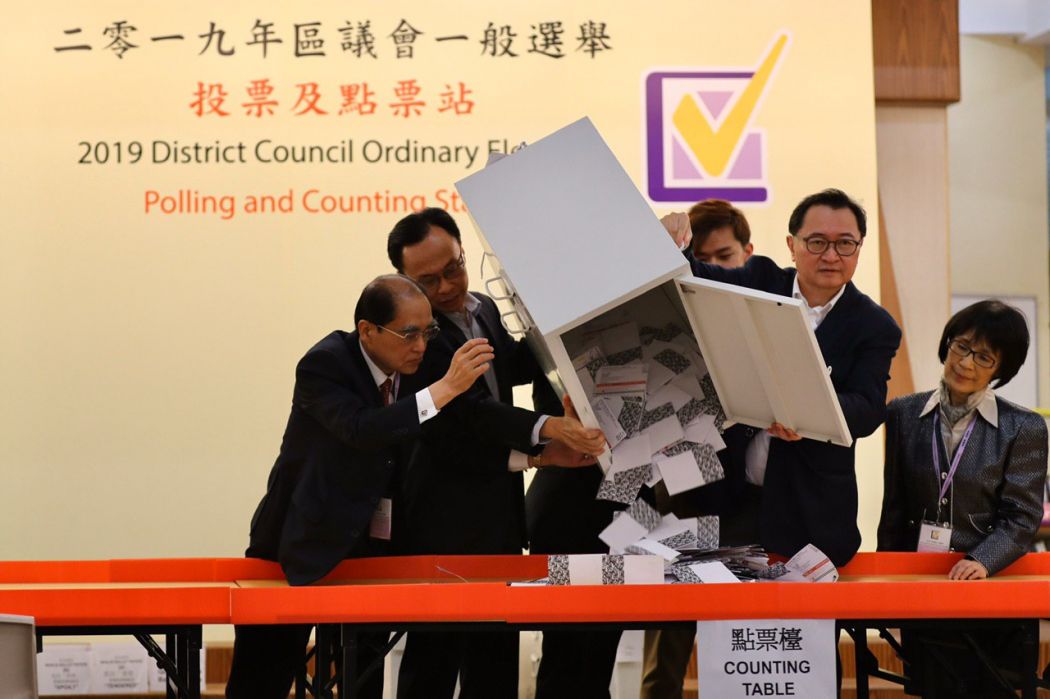It is not necessary for Hong Kong to hold elections to appoint district-level administrators, former chief executive Leung Chun-ying has said.
Leung, who is also a vice chairperson of the Chinese People’s Political Consultative Conference, said in an interview with iCable on Saturday that it was not necessary for the city’s District Councils to be formed through elections considering the scope of district-level work.

District Council elections are held every four years. In the last election, in 2019, the pro-democracy camp swept a majority of 17 out of 18 local councils.
However, a mass resignation of District Councillors took place in July 2021 following media reports that the government would require them to take oaths, with those disqualified being required to repay their wages and subsidies.
A further 49 District Councillors were disqualified after the government deemed their oaths to be “invalid.”
Following the wave of resignations and disqualifications, over half of the District Council seats – 333 in total – were left vacant, with the government yet to announce plans to hold by-elections.
“Basically [the District Council] is an organisation that accepts consultations. There are a lot of consultation bodies in Hong Kong, some even have some administrative powers, such as the Housing Authority and the Urban Renewal Authority, neither of those are formed by elections,” said Leung.
He added that “having public elections does not mean being progressive,” presenting the city’s Legislative Council before its electoral system was overhauled as an example.

In his maiden policy address delivered last October, Chief Executive John Lee said the government would conduct a “review on district administration” to ensure that the District Councils were run in line with Hong Kong’s “patriots-only” leadership requirements.
Hong Kong’s electoral system, including that for the legislature, was overhauled in March 2021 to ensure that “patriots” govern Hong Kong.
The move reduced democratic representation in the legislature, tightened control of elections and introduced a pro-Beijing vetting panel to select candidates.
The Hong Kong government said the overhaul would ensure the city’s stability and prosperity. But the changes also prompted international condemnation, as they made it near-impossible for pro-democracy candidates to stand.
Support HKFP | Policies & Ethics | Error/typo? | Contact Us | Newsletter | Transparency & Annual Report | Apps
Help safeguard press freedom & keep HKFP free for all readers by supporting our team

LATEST FROM HKFP
HKFP has an impartial stance, transparent funding, and balanced coverage guided by an Ethics Code and Corrections Policy.
Support press freedom & help us surpass 1,000 monthly Patrons: 100% independent, governed by an ethics code & not-for-profit.










